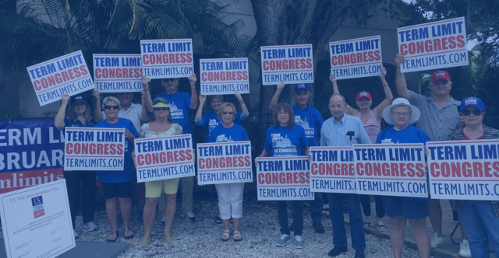About Us
How we are different:
1. Lower cash to close at the same rate
While we'll never be the best deal (after all, only one company can be the best
deal), we are a really good deal. Example: Compared to Chase, Wells Fargo, and many other
retail lenders (once a broker like us is involved, it's called wholesale lending), if they're
charging $6,000 in points on a $400,000 loan, at the same interest rate we will be charging
zero in points. If they're charging $7,500 in points on a $500,000 loan, at the same interest
rate we will be charging zero in points. 1.5% in yield spread. The most we've ever beaten
someone by is $10,000.
How is this possible? Two reasons: 1 is the difference between wholesale and retail lending.
If a loan officer at a retail lender does something really egregious like forge someone's
pay stubs and gets caught, the lender is on the hook for his behavior. If we forge someone's
pay stubs, the lender is not on the hook. That liability has shifted to us, the broker.
By being subject to less liability, a wholesale lender can offer the same loan at less cost.
2 is our fee . On normal loans, we charge 1.5% of the loan amount. The maximum
allowed by federal regulation is 3%. So you could be talking to another broker who is also in the
wholesale lending space, quoting you the exact same lender because that lender was the best deal
that day. But if they're charging 3% and we're charging 1.5%, we still beat them by that same margin.
If that sounds too good to be true, see the "Licensing info" video above to verify licensing.
If you'd like a rate quote, we do not require a credit pull, loan application, or documentation. Call or e-mail, and we will tell you the information we need.
2. Higher debt-to-income ratios than many bank lenders (we primarily work with non-bank lenders)
Example: A couple making $80,000/year combined, with a $500/month car note and $200/month
student loan, Conventional, 5% down, 6.0% rate, 600/mth taxes + insurance: With a 50%/50%
DTI cap, we can pre-approve up to a $340,000 purchase price. A bank with
a 36%/45% DTI cap can only go to $285,000 . Same couple, no debts other
than the new mortgage: We can pre-approve up to $460,000 , 36%/45% lender
is capped at $303,000 .
This is not an advertisement, promise, or even an implication that you will qualify
for a 6.0% rate. Your rate will vary based on a number of factors, including but not limited
to the following: The state of the global financial markets, your personal credit score,
down payment, occupancy, and term.
3. We typically start with a soft credit pull so your scores are not affected
We also make suggestions to improve your credit score in the short run. An
improvement of 20 points on a Conventional $200,000 loan can easily translate into
a $250-500 savings in lender fees. $300,000 loan, $375-750, etc. Sometimes it's much
more, depending on down payment (or equity position, in the case of a refinance) and
which credit tier you're moving from.
Note: This is not credit repair.
4. Besides your standard Conventional, FHA, VA, and USDA loans, purchase and refinance,
fixed and adjustable rates, 10-30 year terms, we offer a variety of alternative loan products.
Are you a business owner who has been turned down, due to the deductions on your tax returns
causing you to show little to no income? We can qualify you off of bank statements. Do you
have zero documentable income but at least a 680 credit score and lots of savings (or equity,
if a refinance)? We can do that loan. Are you good on income and credit, but have little to
no savings? Ask about our down payment assistance products. Good income and savings, but low
credit score? We can go down to 500. See below for more detail:
1. Use a concurrent, aka piggyback, HELOC to:
a. Purchase the new home before selling the old home
b. Avoid Jumbo rates and/or underwriting guidelines on the 1st mortgage
c. Avoid mortgage insurance
d. Avoid a Full Review and instead use a Limited Review on a condo
2. Down payment assistance for FHA loans in the form of a repayable 2nd mortgage,
a forgivable 2nd mortgage, or a grant. Closing cost assistance for USDA loans in the
form of a repayable or forgivable 2nd mortgage. Purchase only.
3. FHA and VA loans down to a 500 credit score, USDA down to 550. Purchase or refinance.
4. Under contract on a new build that won't be complete for awhile? Lock up to 180
days out. Purchase only.
5. Renovation loans: Finance the cost of improvements into the loan,
and have the work done over a maximum of 6 months post-close. Purchase or refinance.
6. Assets as income: Are you retired and making less now, but have a lot
in your 401k, or IRA? Use that to qualify. Purchase or refinance.
7. Non-QM:
a. Self-employed or own a business, but don't qualify for a normal loan due to all of your
deductions? Qualify off of your bank statements or 1099's in lieu of tax returns. Purchase or refinance.
b. Community Mortgage: Qualify for a primary residence or vacation home using your
credit score, down payment, and reserves (funds left over after closing). Your personal income
or debts will not be factored in. Purchase or refinance.
c. DSCR (debt service coverage ratio): Qualify for a rental property using
the cash flow of the property. Short-term rents may be used to qualify, i.e. AirDNA. Your
personal income or debts will not be factored in. Purchase or refinance.
d. Asset depletion: If your main source of income isn't enough to qualify, and you have a
401k, or savings account, or brokerage account, etc. with a large balance, use that to supplement
your qualifying income. Purchase or refinance.
e. Close in an LLC, corporation, etc. instead of as a natural person. Purchase or refinance.
f. Interest only payments. Purchase or refinance.
g. 40 year term. Purchase or refinance.
h. Foreign national. Purchase or refinance.
8. Property types other than 1-4 unit residential:
a. Land loans: Finance vacant or raw land. Purchase or refinance.
b. Hobby farm: For a property that is too 'farm' for a normal home loan,
but not truly business-purpose, either. Purchase or refinance.
c. Agriculture: For working farms, ranches, orchards, etc. Purchase or refinance.
d. Commercial: 5+ unit apartment buildings, office, retail, mixed-use,
auto repair, warehouse, self-storage. Purchase or refinance.
9. Small business lending: No collateral. 5 or 7 year term loans up to
$500,000. Lines of credit up to $150,000.


